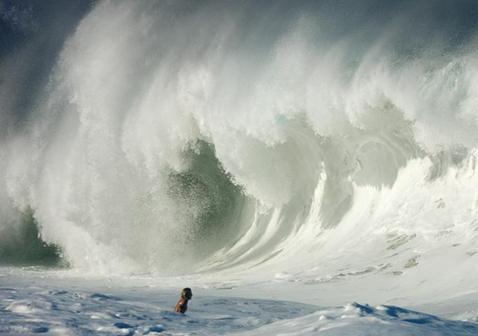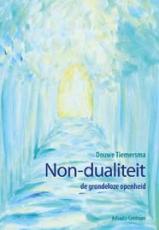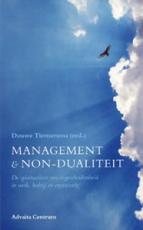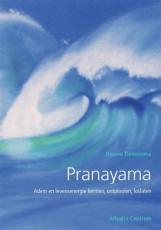Advaita Post 10-12 --- Freedom is freedom from defensiveness...
Volume 10 No 12 (August 5, 2009)
--- Freedom is freedom from defensiveness and therefore fundamental acceptance of what is ---

What is going to happen?
From the meeting of the book presentation of Non-duality – the groundless openness, November 21, 2008 in Bookstore Donner
Douwe Tiemersma: reaction to the speech of Otto Duintjer (see the previous Advaita Post # 11)
Yes, the points that Otto Duintjer has raised are so important to the advaita approach that it's more than worth the trouble to attempt a greater clarity. This has been obvious again and again throughout the years in our conversations. Of course, the basic experience of different people is also different. Then also there is a difference in the elaboration. When you begin speaking with one another and pointing things out, then the mutual understanding appears to grow, not only on the mental level, but also in understanding being. Of course the emphasis can always be accented differently. When the conversation continues, it's precisely those differences that offer the opportunity to recognize specific things more clearly. I hope to contribute something to that clarity here.
The preference for the undifferentiated
The first point of Otto concerned the preference that I have for letting go and for the Nothing. When I speak about this, it's always on the grounds of quite practical problems that human beings have. From practical problems and suffering, such as frustration, pain and blockages, people can review and rethink. In that investigation into the nature of the problems you come to the confirmation that problems are caused by separation from and identification with something limited. There are conflicts because there is separation. You can of course say that some conflicts are very healthy, but most of them aren't and also aren't necessary. People would rather be rid of the sufferings of existence. The sufferings dissolve in a greater whole in which the separations are no longer present. Thus, on the basis of quite practical problems that human beings have, I point towards a sphere that is much greater than that of the problems. If you want to go further into the solution of all problems, then all separations in your own being experience must disappear. The core of all separations and also of the problems sits in your own ego, which you are as long as you make a separation "I am here and the other is there", "I am here and what I desire is there", et cetera. This limiting structure and separation-making must break open into a greater sphere of being; self-being, being-together, if the problems of one-sidedness, disharmony, conflicts, sorrow, pain et cetera are to disappear. Thus, in a very practical context, I have a preference for the expansion and release of limitations, because this leads directly to the dissolution of that which limits.
There was a question from Otto, if this process goes in the direction of a higher truth and reality. My experience is that that indeed becomes recognized and that this recognition is direct. There is a direct confirmation that, as the releasing and expansion occurs, a higher reality is revealed. The recognition of that higher truth is then also a criterion that I use to indicate that the development is going in a good direction.
A very classical example to illustrate is the following. When you awaken from sleep after an unpleasant dream, you are relieved to confirm in the wakeful state that the content of the dream was only a dream. For instance, you were chased there but knew nothing of the wakeful state. You became awake and said: "Luckily, that was but a dream. Now I am awake, there is a clearer and larger consciousness, so that from this viewpoint I can determine that it was but a dream. Therefore I can release it."
In the sciences you have a comparable situation whereby one theory is rejected in favor of a new one, namely that the new one can include the old in a larger whole, and when that is the case can also show why the previous one is limited. The point is that much more understanding arises, that more phenomena can become explained than previously. Then it is clear that this new theory is more valuable. It has a higher truth than the previous one. Thus by becoming more clear, more conscious in a greater whole, you see that the conflicts that existed under the old circumstances were caused by the limitations of the viewpoint and the knowledge. When you release that limited viewpoint, it becomes absorbed into a greater whole. That is not to say that the conflicts will immediately disappear, but you can certainly see their relativity along with more possibilities for their solution within a much greater space and with greater clarity. Thus in this sense, I find it important to go towards the realization of the undifferentiated in this way. Sooner or later, if you don't want to remain tightly fixed in a limited identity, you will experience complete freedom from everything.
This is not to say that you have realized the highest non-duality, when you go towards the ultimate in this way. It's not only about the non-duality of the totally blank state, in which subject and object completely merge, towards the nothing, the emptiness, as long as there still is a creation. If that would be so, there should remain a fundamental duality. Otto already referred to the title of Chapter 6 in my book: The non-duality of the absolute and the relative. For as long as there are forms in space and in time, they are not fundamentally different from that emptiness.
It's certainly of interest to get to know that emptiness and to let that dimension remain open. If that dimension doesn't remain open, then you zoom back in on a limited situation and you are stuck once again in the separateness, in the conflicts and problems. For most people, in order to get to know that undifferentiated emptiness, a practice of a certain period of time is necessary. Therefore there is the encouragement: go forward on the way of release; get to know that freedom, otherwise you will stay stuck on a particular level of limitation, ignorance and problems. Thus, I find that quite important that that process continues all the way into infinity.
You see that it's possible for all different kinds of people: suddenly everything breaks open and all at once there is a totally new situation. What kind of new situation? Precisely when you go so deeply within yourself and experience the openness in an increasingly pure form, the real openness suddenly breaks through, because you have released your limitations. Everything immediately becomes so open, that everything is allowed to be. You go within, but at a given moment - precisely the more within you go - it turns inside-out. That means that there is no separation any longer between inner and outer. Only when you release your limitations and experience yourself as infinite, there is then a reversal and can you accept everything. Thus, you can certainly say that the way within goes towards the undifferentiated, and that that creates a distance, but it is especially about a release of your own attachments, your own limitations, your own ignorance, and of the identification with your body, self-image, and so on. If you return to the undifferentiated origin, then you take a distance from it and you come into an even greater whole. Then you see the whole creation very well, because there is no fundamental resistance any longer, also no resistance to pain, cowardice, meanness, to everything we find ugly. The acceptance of which is impossible on the level of the ego, because defensive mechanisms are always there. Only in freedom is there complete acceptance. Freedom is freedom of defensiveness and there is a fundamental acceptance of what is. How things continue then when there is no self-interest any more, shows itself automatically.
'Inclination' towards the positive
It's not by chance that I speak more about the positive: freedom, peace, joy, than about the negative. It's a description of the sphere that always arises by itself as more space comes. When I speak about it, it's much more descriptive than if I were to posit it as a value: 'You must run after it'. Sometimes I do that too, but then I simultaneously say that it's a sausage for which you are at least motivated to act. It's beautiful, but it's not the highest value. It is something that appears, when there is an expansion from your own limited sphere, for instance with an embrace. That gives joy. If you talk with someone and all at once a mutual understanding arises, that brings joy. Why? Because the mutual borders disappear and because a greater sphere arises. Some seek it by racing with a fast car and yes, there arises a greater experience-space and the joyful feeling that it's great to be alive. Everyone finds that great life beautiful. Why? It's not about the specific things, no, it's about the experiencing of a greater being sphere and that has joy within it. There is another example that you see sometimes at the end of somebody's life, and with some, even earlier. Apparently some people, who have gone through all kinds of pain and difficulty, can still say: "It is good." How is that possible? That is possible as there is a greater space that arises in which everything so painful and sorrowful comes to rest. From out of that space it can be said: "It is good." That goodness has nothing to do any more with the contrasts between good and bad, between having pain and feeling joy. It is something that goes out beyond the contrasts.
Otto knows enough of Plato; also that Plato meant something in that direction when he referred to the highest ideas. They are not ideas then that you place far way in an ideal realm. No, for the philo-soph, it concerns his own sphere of being, if it's good, bypassing all contrasts. Furthermore, Plato set the Good as the most important idea and that's not at random. No, you experience it, if that idea really shows its value. Therefore men can say at a given moment: "All sorrow and pain have been taken up into something that I once again name as Good." For so far as it is combined with a mood, an emotion or universal sphere of being, there is joy, bliss.
Thus once again, I defend the positive not as the highest value, but describe it as something that arises by itself on the spiritual path as the contrasts become transparent.
Physicality
Finally there is still the point of physicality in the spiritual unfolding. I give physical exercises, because they appear to work with many people. If you return to the feeling sphere in your own body, you can make all kinds of important confirmations very clearly. If you really dive into your physical sphere, you can, for instance, examine where it stops. Take a look. You turn literally within and you experience your own being sphere. That experience is always a direct confirmation. How large is this physical sphere? Can you then go to the left and to the right, forwards and backwards, but do you find an end somewhere? That space doesn't ever stop. I have not yet heard someone say: he stops with the skin, or somewhere 5 meters beyond. Your own being sphere appears to be infinite. Otto then said that it is nothing more than a medieval proof of god. No, that isn't really so, because here it's not about an argumentation, but rather a concrete experience.
As Otto observes that he cannot feel if the neighbors are at home, that can be true. That's not what this is about. You experience your own being sphere in a current way. If particular phenomena arise there, they arise therein. And if they don't come up there, they don't come up in there. If the neighbors don't come up in there, they're not at home, even though they may be there if you follow another kind of approach. Reality is dependent on your way of approaching it.
What you determine, as you dive into your own physical sphere of being, is in any case that that sphere is infinite, without borders, without cracks, without separations. You can experience that very clearly, if for example, you extend your arms outward and the feel the space, and if someone embraces you. What happens then? All borders fall away, don't they? No duality is to be found, right? Thus the reference to the physicality offers a chance to experience non-duality quite concretely. It is quite simple. You embrace someone and immediately you confirm it: there is no twoness. There is no defense of territory. Your physical feeling sphere becomes open and within it there are no borders! You become infinitely open and in that everything and everyone is absorbed.
If you establish yourself as a person and observe that you cannot hear what the neighbors say, then that's a whole other situation, a whole other viewpoint. That viewpoint can be relevant under certain but not all circumstances. When the reality really becomes open, all viewpoints appear to exist as possibilities for being present. Just as Otto says, the openness is not sterile. It is precisely the space in which all viewpoints and situations are possible. But exactly because you keep everything open, the great whole remains completely intact. That remains the encompassing context. Then it's clear: this encompassing whole is my aware sphere of being present. Then there is no preference for the one over the other. That open context makes sure that non-duality remains there.
Best wishes for a liberating August,
Douwe Tiemersm
Er is geen tweeheid
als je ontspannen bent
in zelf-bewustzijn
is dat duidelijk.
Boeken
Douwe schreef en redigeerde gedurende zijn leven boeken. Via onze uitgeverij zijn deze nog verkrijgbaar.



